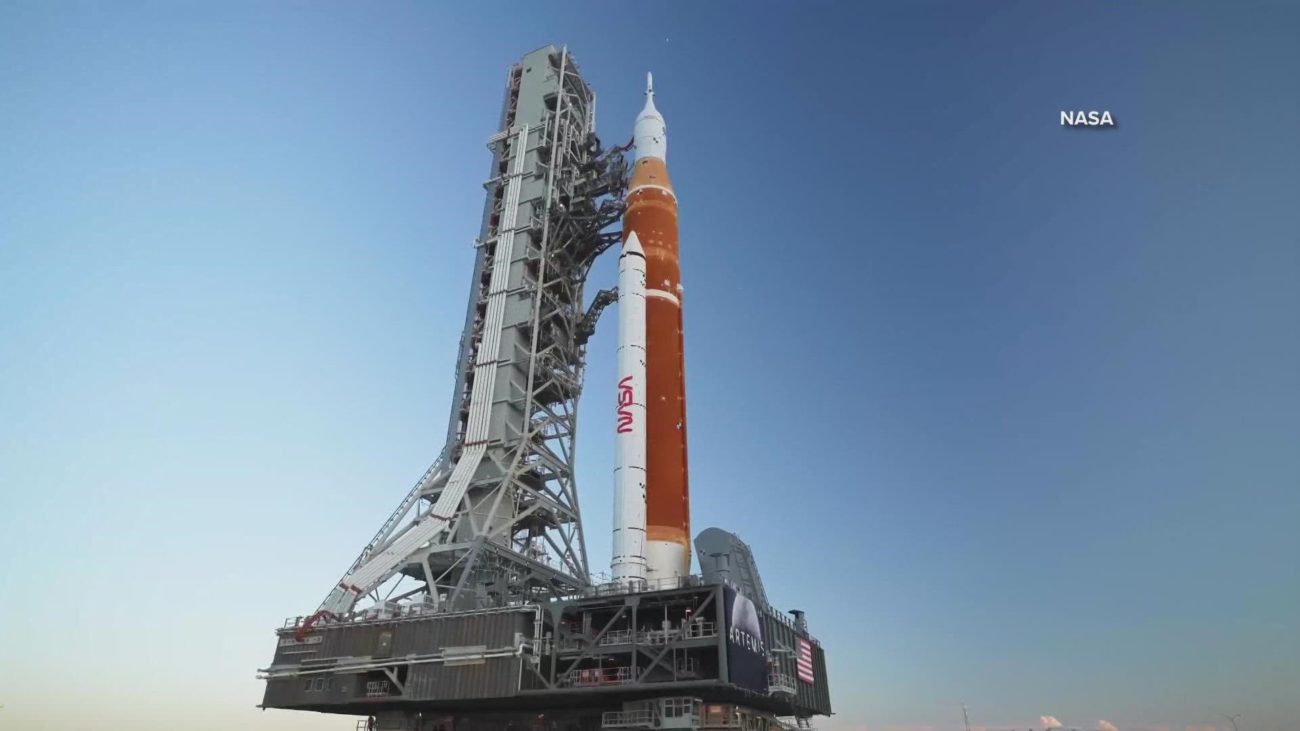NASA will try again to launch its Artemis 1 moon rocket on Saturday after a glitch halted the first countdown earlier this week.
NASA announced Tuesday that it’s now targeting Saturday, September 3, for the launch of Artemis 1 after a technical issue canceled the first liftoff attempt on Monday.
A bad sensor could be to blame for Monday’s scrapped launch, NASA managers said at a Tuesday press conference. The fueling procedures for Saturday’s launch will also be different to deal with the issue.
If all goes according to plan, the 322-foot Artemis I — the most powerful rocket ever built by NASA — will launch from Pad 39B at NASA’s Kennedy Space Center (KSC) in Florida during a two-hour window beginning at 2:17 p.m. ET.
The rocket will attempt to send a crew capsule with just three test dummies aboard around the moon and back. If successful, it will be the first capsule to fly to the moon since NASA’s Apollo program 50 years ago.
Preparing for a Saturday launch will provide valuable insight, even if the glitch reappears and the countdown is halted again, said NASA’s rocket program manager, John Honeycutt.
That’s better “than us sitting around scratching our heads, was it good enough or not,” said Honeycutt. “Based on what I’ve heard from the technical team today, what we need to do is continue to pore over the data and polish up our plan on putting the flight rationale together.”
During Monday’s launch attempt, Artemis 1 team members noticed that one of the four main engines in the rocket’s core stage was not cooling to the desired low temperature — about minus 420 degrees Fahrenheit — ahead of ignition.
It appeared to be as much as 40 degrees Fahrenheit warmer than the desired temperature.
Having the correct temperature in all the engines ensures there is no shock when the engines light up, mission team members have explained.
All of the engines appear to be fine now, according to Honeycutt. He questioned whether an engine sensor may have provided an inaccurate temperature reading Monday, but to change that sensor would mean hauling the rocket back into the hangar, resulting in weeks of delay.
The cooling operation of the engines will be conducted a half-hour earlier for Saturday afternoon’s launch attempt once fueling begins that morning. Honeycutt said the timing of this engine chills down was earlier during a successful test last year, so performing it sooner may be the solution.
As its name suggests, Artemis 1 is the first mission of NASA’s Artemis program, named after the twin sister of Apollo in Greek mythology. Already years behind schedule, the $4.1 billion test flight is the first step in the program that aims to establish a sustainable human presence on and around the moon by the end of the 2020s.
Astronauts could strap in as soon as 2024 for a lap around the moon and attempt a lunar landing in 2025.
Even if all the technical issues are resolved, there is no guarantee a launch attempt will take place on Saturday afternoon, thanks to Mother Nature.
Mark Berger, a launch weather officer with the U.S. Space Force’s 45th Weather Squadron, said the latest forecasts show a threat of showers and thunderstorms along Florida’s Space Coast on Saturday.
During a Tuesday press conference, Berger said there’s a 60% chance of the weather preventing a liftoff during Saturday’s launch window. Still, Berger expressed optimism that the weather would clear at some point during the window, giving Artemis 1 a chance to lift off.
Artemis 1’s launch will be live streamed for free at Space.com, courtesy of NASA.






